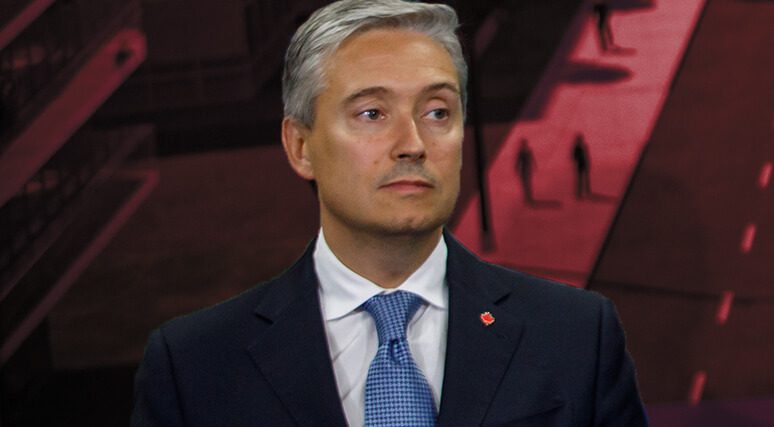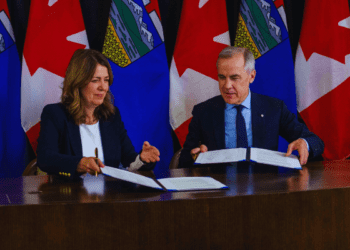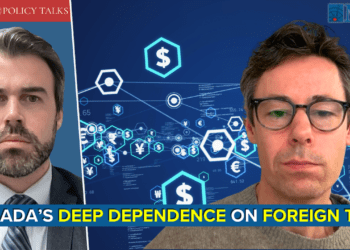 Foreign Affairs Minister François-Philippe Champagne’s nonresponse to calls to protect Chinese Canadians amounts to tacit consent for Beijing to continue acting as if ethnic Chinese, Tibetans and Uighurs within Canada should still be subject to repression by China’s Communist regime, writes Charles Burton.
Foreign Affairs Minister François-Philippe Champagne’s nonresponse to calls to protect Chinese Canadians amounts to tacit consent for Beijing to continue acting as if ethnic Chinese, Tibetans and Uighurs within Canada should still be subject to repression by China’s Communist regime, writes Charles Burton.
By Charles Burton, September 8, 2020
Notwithstanding its nimble handling of a pandemic, Justin Trudeau’s government will be vulnerable in the next election if voters don’t see meaningful action replace Canada’s passive rhetoric on China’s human rights, trade and hostage diplomacy.
This summer, the Commons Subcommittee on International Human Rights and the Commons Special Committee on Canada-China Relations heard harrowing testimony from witnesses who say Chinese government agents threaten them and their families in Canada and in China.
Canadian Chinese and Canadian Uighur activists told of being threatened with rape or even death if they keep speaking out against violations committed by China against the Uighurs, or the persecution of Hong Kong residents clinging to political rights.
Witnesses pleaded for Canada to stop this intimidation campaign being co-ordinated by the Chinese Embassy in Ottawa and its consulates in Montreal, Toronto, Calgary and Vancouver. All people in Canada are entitled to the protection of the Canadian Charter of Rights and Freedoms, including Chinese Canadians or citizens of China here in Canada as students or for other purposes.
Foreign Affairs Minister François-Philippe Champagne’s non-response to calls to protect Chinese Canadians amounts to tacit consent for Beijing to continue acting as if ethnic Chinese, Tibetans and Uighurs within Canada should still be subject to repression by China’s Communist regime.
Sadly, this is consistent with Canada’s non-action on China. Regarding offering sanctuary to Hong Kong activists facing persecution due to repressive moves by Beijing, we are told that Ottawa is thinking it over. Ditto to applying Magnitsky sanctions against Chinese officials complicit in genocidal measures against Uighur people, including forced sterilization of women.
These sanctions are already applied against officials in Saudi Arabia, Venezuela and other countries engaging in human rights abuses less serious than China’s. If Ottawa defers these decisions as long as they have delayed ruling on Huawei 5G, Canada’s sagging reputation as a weak link in maintaining international rules-based order will be confirmed.
Magnitsky sanctions would seriously impact China’s “red nobility,” who park dubious assets in Canada. For them this country serves as a bolt hole in case of being on the losing end of factional struggles that characterize China’s unstable nondemocracy.
This includes Meng Wanzhou, the Huawei CFO with a $5-million, six-bedroom residence plus a $13-million estate more than triple that size in one of Vancouver’s toniest neighbourhoods. (Meng was carrying seven passports when detained by Canadian authorities.) People like this are not so concerned about military conflicts or decoupling from the West, as they are of Magnitsky cancellation of their visas and confiscation of their overseas money and assets.
To maintain power, Party General-Secretary Xi Jinping must be seen as protecting the interests of Communist elites. If they believe his mismanagement of relations with Canada will impact them directly, Xi has a major problem. But this point appears lost on Canadian policy-makers, those same people who seem in no hurry to consider a Canadian iteration of Australia’s Foreign Influence Transparency Scheme Act.
That law has led to numerous former senior Australian government people resigning from the lucrative China-related boards and consultancies. Such plums are a key tactic of China’s covert and corrupt approach to cultivating influential Western “friends.”
What of the sotto voce reservations expressed about the impact of Canada doing anything that China would not like on the fate of hostages Michael Spavor and Michael Kovrig? After more than 600 days of incarceration, Ottawa’s refrain “we are working very hard” to achieve their release has worn thin. The fact is, Beijing will hold these two innocent men for as long as it benefits the furtherance of China’s agenda in Canada, regardless of any impact on China’s global credibility.
Currently, Beijing has got us where they want us. The tragic fallacy of Canada’s silence is that the longer we remain passive in the face of China’s appalling violations of international trade, diplomacy and human rights, the longer we can expect Kovrig and Spavor to remain in Chinese prison hell.
Charles Burton is a senior fellow at the Macdonald-Laurier Institute in Ottawa, and non-resident senior fellow of the European Values Center for Security Policy in Prague. He is a former professor of political science at Brock University, and served as a diplomat at Canada’s embassy in Beijing.




